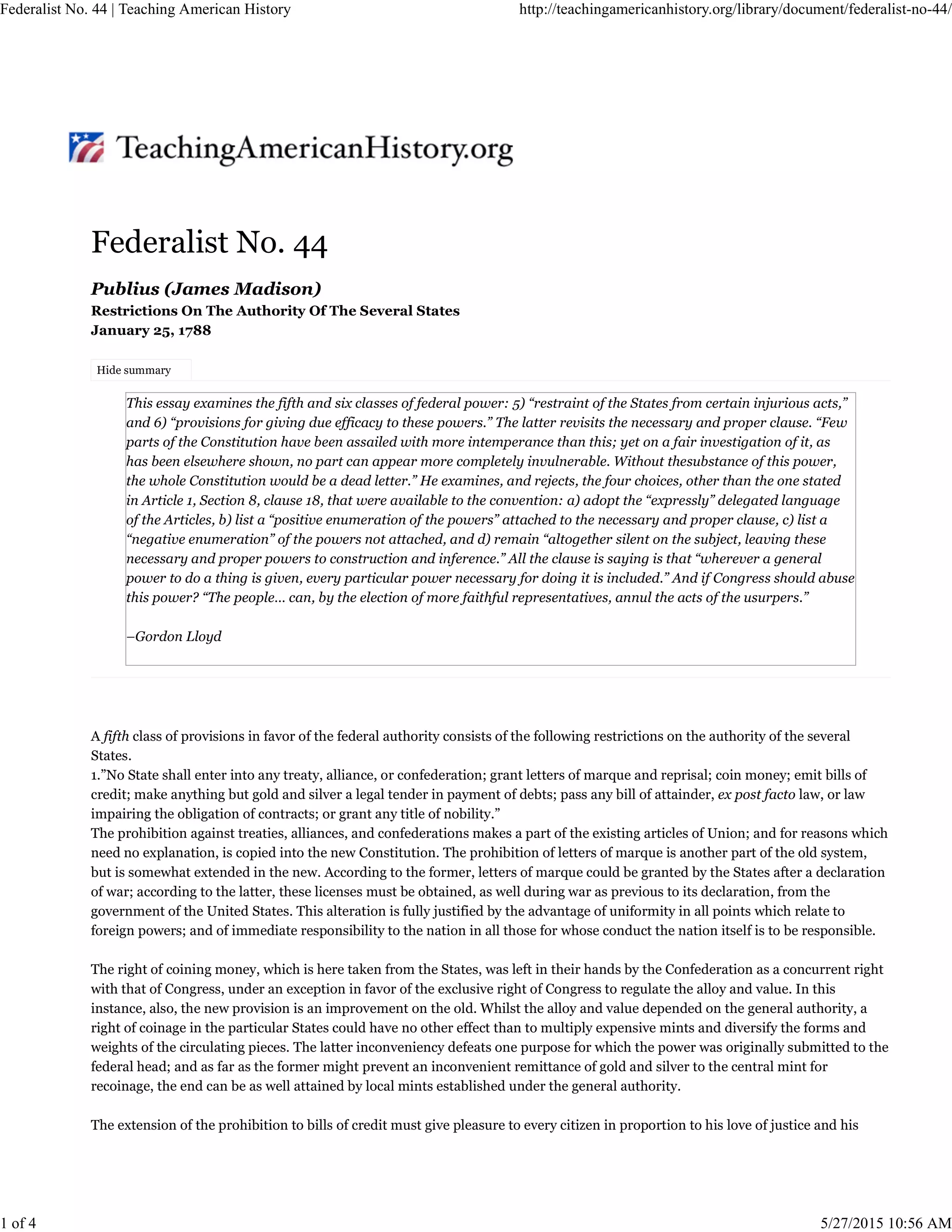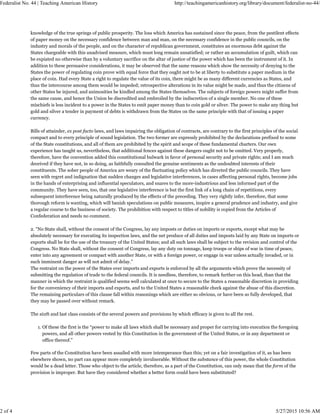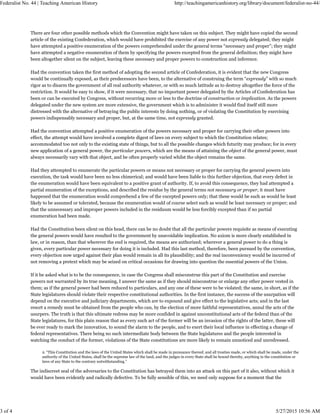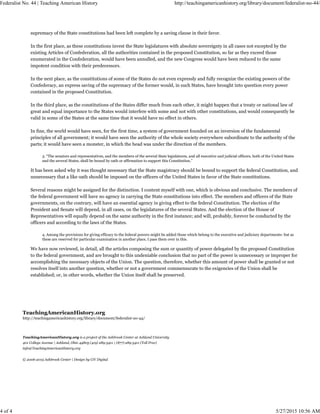Federalist No. 44 discusses two classes of federal powers granted by the Constitution: restrictions placed on states, and provisions giving efficacy to federal powers. Regarding restrictions on states, Madison examines clauses prohibiting states from entering treaties, coining currency, and imposing duties. He argues these restrictions preserve national authority and prevent economic discord between states. The essay also defends the "necessary and proper" clause, rejecting claims it grants overly broad powers, instead arguing it simply means powers incidental to express authorities are also authorized.



